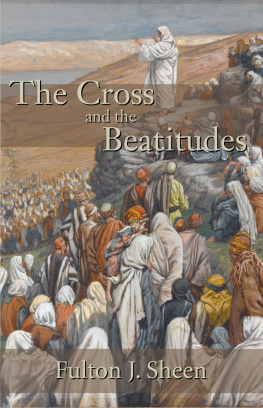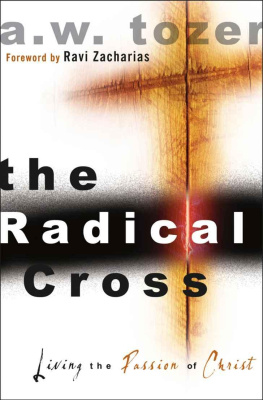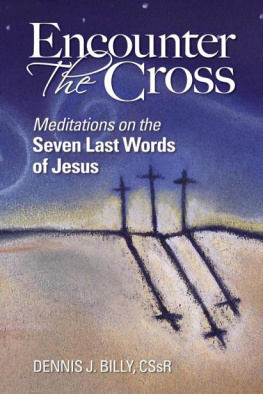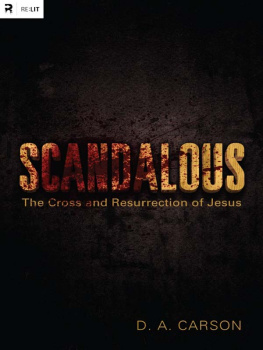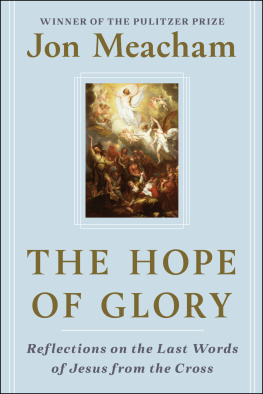SEVEN WORDS
Seven Words
Listening to Christ from the Cross
Seven Words
978-1-7910-0781-2
978-1-7910-0782-9 eBook
Seven Words: DVD
978-1-7910-0785-0
Seven Words: Leader Guide
978-1-7910-0783-6
978-1-7910-0784-3 eBook
Also by Susan Robb
Called: Hearing and Responding to Gods Voice
SEVEN WORDS
LISTENING TO CHRIST
FROM THE CROSS
Susan Robb

SEVEN WORDS
Listening to Christ from the Cross
Copyright 2020 Abingdon Press
All rights reserved.
No part of this work may be reproduced or transmitted in any form or by any means, electronic or mechanical, including photocopying and recording, or by any information storage or retrieval system, except as may be expressly permitted by the 1976 Copyright Act or in writing from the publisher. Requests for permission can be addressed to Permissions, The United Methodist Publishing House, 2222 Rosa L. Parks Blvd., Nashville, TN 37228-1306 or emailed to .
Library of Congress Control Number: 2020946777
ISBN-13: 978-1-7910-0781-2
Unless noted otherwise, Scripture quotations are from the New Revised Standard Version Bible, copyright 1989 National Council of the Churches of Christ in the United States of America. Used by permission. All rights reserved worldwide. http://nrsvbibles.org/
Scripture quotations marked MSG are taken from THE MESSAGE, copyright 1993, 1994, 1995, 1996, 2000, 2001, 2002 by Eugene H. Peterson. Used by permission of NavPress. All rights reserved. Represented by Tyndale House Publishers, Inc.
Scripture quotations noted ESV are from the ESV Bible (The Holy Bible, English Standard Version), copyright 2001 by Crossway, a publishing ministry of Good News Publishers. Used by permission. All rights reserved.
Scripture quotations marked (NIV) are taken from the Holy Bible, New International Version, NIV. Copyright 1973, 1978, 1984, 2011 by Biblica, Inc. Used by permission of Zondervan. All rights reserved worldwide. www.zondervan.com The NIV and New International Version are trademarks registered in the United States Patent and Trademark Office by Biblica, Inc.
20 21 22 23 24 25 26 27 28 29 10 9 8 7 6 5 4 3 2 1
MANUFACTURED IN THE UNITED STATES OF AMERICA
In memory of my parents,
John and Floy,
and also my brother, Mike,
and dear cousin, Brenda,
whose last words at the end of each day,
and life, were the ones that were
most important to hear: I love you.
CONTENTS
INTRODUCTION
As a minister, Ive had the holy privilege of experiencing the intimacy of being at the bedside of those who were near death or in the hospital with those going into surgery not knowing what the outcome might be. Almost always the messages of the dying, or of those who think the chances of death are high, are poignant.
Weve had a good life together.
Everything is going to be okay.
I want you to take care of each other.
Youll never know how proud I am to have been your father (or mother, grandparent, son, or daughter).
Whether they are reassuring, poignant, or offer instructions for the future, the last words of anyone who is near death, or thinks that life may be coming to an end, almost always communicate in some form or fashion, I love you more than you can know. On their deathbeds, people tend to convey messages that are most important to them; words that they most want their families and friends to hear. What Ive also discovered is that family members always want to lean in and listen to these last words because they are eager to hear what the one they love most has to saya message that they will always remember, a message that might be just for them.
Though Jesuss dying words from the cross are few, they reflect the same tenderness, the same compassion, the same forgiveness, the same unconditional love, the same giving of himself, the same faith and trust, and the same desire to welcome everyone into his kingdom as his actions exhibited in life. In the midst of unimaginable cruelty and taunting, Jesus offers forgiveness to his persecutors, and his killers. In the midst of suffering, he offers a human cry that, when followed to its scriptural conclusion, leads to reassurance, hope, life, and joy for all humanity. As he looks upon his mother for the last time, he calls his followers into a new community, a different way of understanding family. And in his final breath as a human, he trustingly gives himself back to the One who breathed life into the first human beings.

When we look at Jesuss last words in each of the Gospels, it may be surprising to learn that not all of them are recorded in all four accounts. In fact, only one of these sayings is quoted in more than one Gospel, and six of the seven last words are unique either to Johnthe only Gospel whose author is presented as an eyewitness to the crucifixionor to Luke. Here is a quick breakdown:
Matthew and Mark:
My God, my God, why have you forsaken me? (Matthew 27:46; Mark 15:34)
Luke:
Father, forgive them; for they do not know what they are doing. (23:34)
Truly I tell you, today you will be with me in Paradise. (23:43)
Father, into your hands I commend my spirit. (23:46)
John:
Woman, here is your son.... Here is your mother. (19:26-27)
I am thirsty. (19:28)
It is finished. (19:30)
One might wonder why each Gospel writer included such differing last words. Why wouldnt each writer record all of Jesuss statements? I believe that these statements are not contradictory, but that each author chose to represent Jesuss particular message(s) for the benefit of his particular community. In addition, each of those authors would have had access to reports of various witnesses to Jesuss crucifixion. Those witnesses would not have included all of the same information or details, just as witnesses to a crime or an earthshaking event will report details that made the biggest impression on them.
We see this pattern throughout the Gospels, not just in the accounts of Jesuss death that emphasize varying details. For example, some of the most familiar Bible stories we may have learned as children, such as the parable of the good Samaritan and the story of the prodigal son and loving father, are recorded only by Luke. Some of Jesuss other parables, like the parable of the wheat and weeds, can be found only in Matthew. Only Luke tells of the angels visitation to Mary, and only John tells us the story of Jesus and his detailed conversations with the Samaritan woman at the well and Mary Magdalene at the garden tomb.
Briefly now, lets look at each of Jesuss seven last words. Well explore them much more deeply in the chapters that follow. For now, lets stop long enough only to consider how these particular memories of what Jesus said from the cross, taken together, give us a more complete picture of who he is and what he calls us to do. Consider, too, how each of these dying words might have been the special words that each Gospel writer believed that his audience needed to hear.
Matthew and Mark report what is known as Jesuss cry of dereliction, My God, my God, why have you forsaken me? While these words appear to express desperation and lost hope, if we look at the context from which Jesus draws them (Psalm 22) and follow them through to their scriptural conclusion, we discover not a cry of abandonment but one of trust, reassurance, and hope. As a people who also sometimes feel as if Gods presence and care are missing in our lives, we need to explore the hope Jesus wishes for us to experience in our own moments of deep darkness.
Next page


